Explaining attention-deficit/hyperactivity disorder, or ADHD, in children
There are a lot of misconceptions about ADHD. According to the CDC, the percentage of children aged three to 17 with attention-deficit/hyperactivity disorder is 9.8%. Because this disorder is so common, it’s helpful to know the facts about it. It’s equally important to know that if children are loud, active or a bit forgetful, it doesn’t necessarily mean they have attention-deficit/hyperactivity disorder.
What is attention-deficit/hyperactivity disorder?
Attention-deficit/hyperactivity disorder is a neurological disorder that affects children’s behavior in distinct ways. Children with this problem find it difficult to control their behavior. This condition often affects their schoolwork, learning and ability to get along with other children and adults. They may also impulsively engage in behavior that puts them in danger.
ADHD is a chronic health condition that can and should be diagnosed and treated to ensure the best possible outcome for children.
What are the symptoms of ADHD?
Experts group attention-deficit/hyperactivity disorder into three types.
Attention-deficit/hyperactivity disorder with predominantly inattentive symptoms. This form of the disorder is what was known as ADD. Symptoms include having trouble focusing, concentrating or keeping on task. Children may be seen as dawdlers or daydreamers and seem forgetful and lose track of their belongings.
Attention-deficit/hyperactivity disorder with predominantly hyperactive-impulsive symptoms. Symptoms include all types of hyperactive behavior, including trouble waiting, being restless, fidgeting and problems with sitting still and being quiet. Children may become bored quickly or rush through tasks. The impulsive part of the problem causes children to act quickly before thinking about their behavior. Impulsive behaviors include intense emotional reactions, pushing, difficulty waiting their turn, doing things without permission and even risky behavior.
Attention-deficit/hyperactivity disorder with combined symptoms includes both inattentive symptoms and hyperactive-impulsive behaviors.
How do experts diagnose and treat attention-deficit/hyperactivity disorder?
If parents or caregivers are concerned or notice symptoms that last six months or more that may indicate ADHD, they should consult with our Plano pediatricians.
At this appointment, our physicians check children’s hearing and vision to make sure another health problem isn’t causing the symptoms. The physicians also ask several questions about the child’s behavior. After the examination and the conversation with parents, our physicians may diagnose attention-deficit/hyperactivity disorder if the following things are true of the child.
- The physical exam did not show other problems that could cause the behaviors.
- The child exhibited the behavior patterns since he or she was young.
- The child’s behavior is affecting his schoolwork, home and social life.
- The child is having problems with hyperactive behavior, impulsivity and inattentiveness that are more extreme than that of their peers.
Our physicians have the experience to help parents find the appropriate treatment for children’s ADHD. Options range from referrals to behavioral therapists to medication. Parents who are worried about their children’s behavior should contact us for an appointment.

